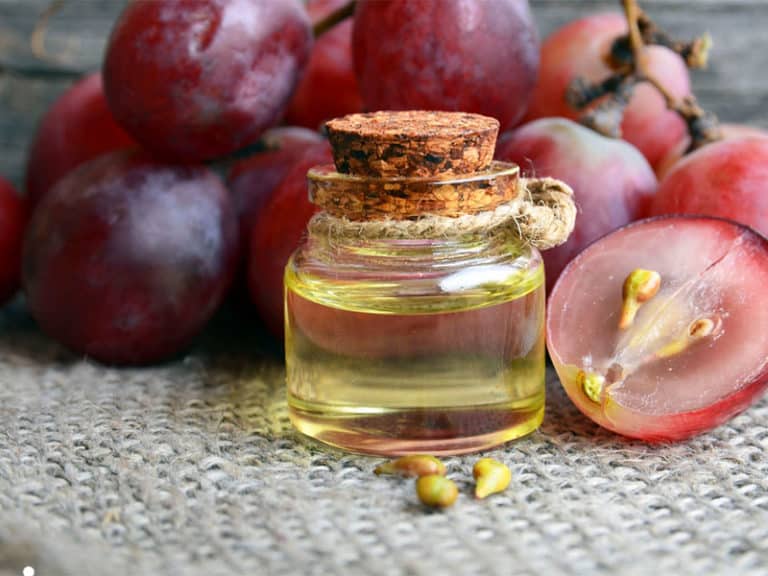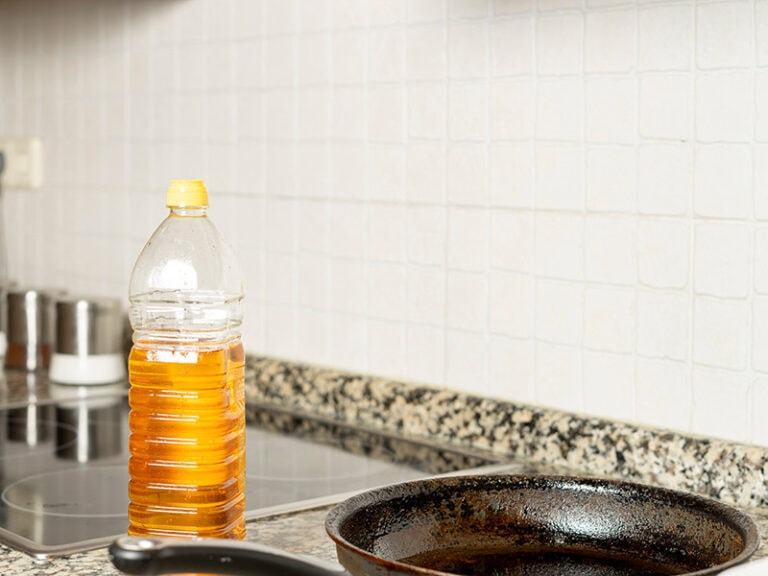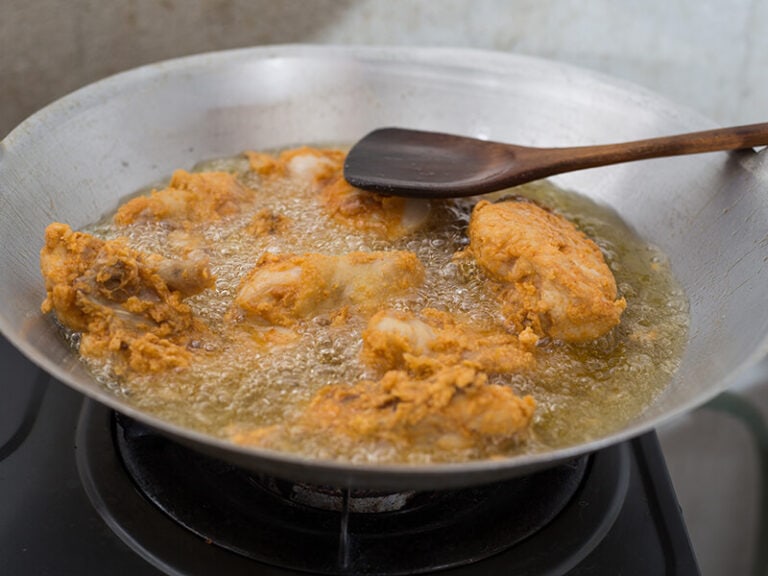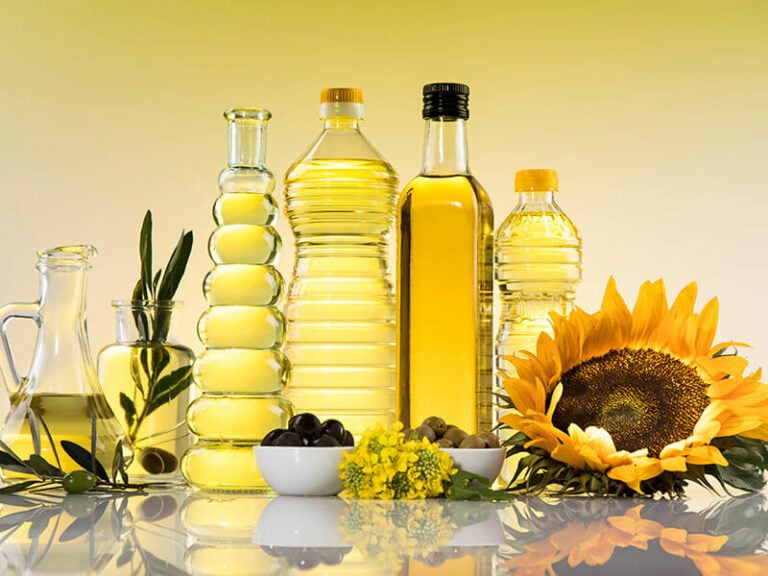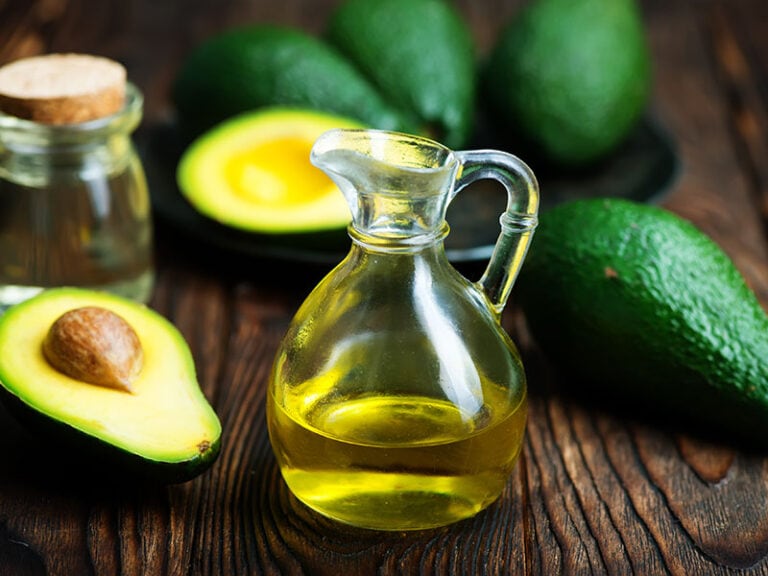Perhaps you have a problem with this question: Can you freeze vegetable oils? It is also a problem that confuses many people because it is difficult to determine the correct answer.
Vegetable oil is a condiment that appears in every kitchen, from famous restaurants to your family. It is so versatile that you can use it in cooking or other tricks.
For example, many people use it for frying, baking, or making salad dressing. Many products, like hair conditioner, skin moisturizer, or sticky stain removers, also need oil. However, do you know if you can preserve it by freezing? Let this article give you the most detailed answer.

Brief Overview Of Vegetable Oil

Vegetable oil can have several definitions. For one thing, it is a type of fat extracted from certain seeds, fruits, or grains. Its main ingredients are triglycerides (unsaturated fatty acids), some good nutrients, and especially vitamins E and K.
People extract, distill, and refine seeds, plants, or fruits that are of fatty richness to make them. Good examples of vegetable oils are soybean oil, olive oil, grapeseed oil, and coconut oil. (1)
However, vegetable oil can also refer to the commercially processed vegetable fats used for cooking. Such products are often made from a mix of different types of oil, such as palm oil, corn oil, sunflower oil, and the like. But this post will consider all types of plant-based oil.
Usually, people use vegetable oil as a salad dressing, make dips, grill meat, fry food, make marinades, bake cakes, and add richness to stews or soups.
Anyway, many forms of vegetable oil appear as a liquid at room temperature. In terms of colors, they can range from pale yellow to amber-yellow and brownish-red.
However, many others do not exist in liquid form at room temperature. For example, coconut oil is nearly solid all the time because it only melts at temperatures above 76°F (25°C).
Compared to butter and animal-based fat, which is high in saturated fat, vegetable oils contain mostly unsaturated fats. Consuming too much saturated fats can cause many unhealthy effects, such as higher levels of bad cholesterol and increased risk of heart disease. (2)
Meanwhile, plant-based oils are rich in monounsaturated fats. This type of fat is beneficial for the heart. They also boast vitamins and polyunsaturated fats.
The smoke points of all three types are also different. Vegetable oils have a smoking point of up to 450°F, much higher than butter (300-350°F) and animal-based fats (usually below 400°F).
Check out this short film about the process of making sunflower oil.
Is It Possible To Freeze Cooking Vegetable Oil?
You can completely freeze cooking oil to preserve and use later. Keeping them in the freezer also limits the impact of heat from the sunlight.
At the same time, freezing also reduces the speed of cooking oil oxidation. In case you don’t know, oxidation creates compounds called free radicals. They are harmful to health and render vegetable oils unusable.
Oxidation is one of the main reasons behind the cloudy color and the presence of rancidity in spoiled vegetable oils. But freezing can slow down the process significantly.
Your vegetable oil’s shelf life can extend when properly frozen, perhaps by as much as 2 years. Therefore, you don’t have to worry about not using up cooking oil in time and watching it go bad. Freezing saves money and reduces waste to the environment.
However, you should not freeze the used cooking oil. Affected by bacteria, heat, and oxidation, it cannot be stored for as long as the fresh one.
Even with proper storage conditions, you can only keep used vegetable oil for up to 4 months at room temperature. Note that during storage, you have to cover it carefully.
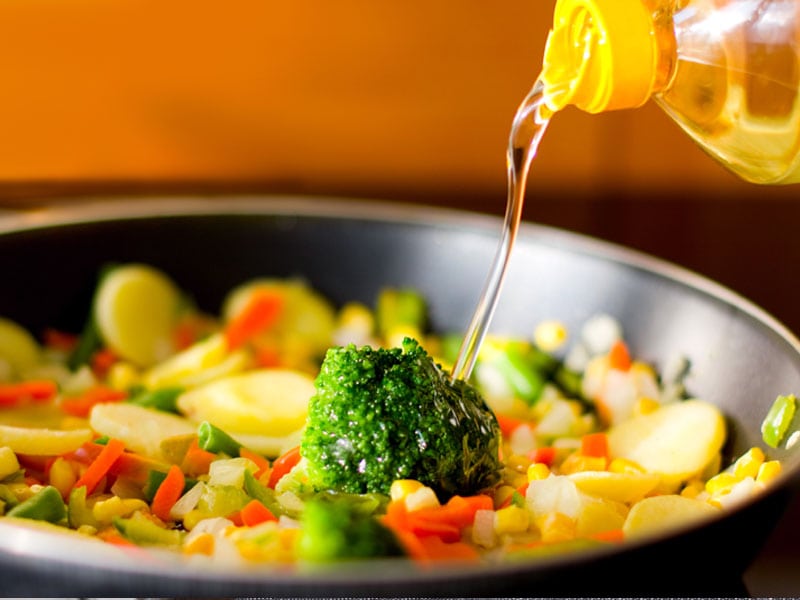
Vegetable Oil And Its Freezing Point
Every food has its own freezing point. Of course, vegetable oils are no exception. But, each vegetable oil has a different freezing point that you need to be aware of.
Luckily, almost common vegetable oils need several hours to solidify. This process slows down the molecules of the oil. Oil turns from viscous to denser and finally to solid.
In general, cooking vegetable oils freeze between 1°F (-17ºC) and 95°F (35 ºC). The most common freezing point is around 45°F (7.2 ºC).

Common Types Of Cooking Oil You Should Know About
There are many types of vegetable oils, and not all are created equal. Below is a summary of information about 10 kinds of oil you can refer to.
Olive Oil
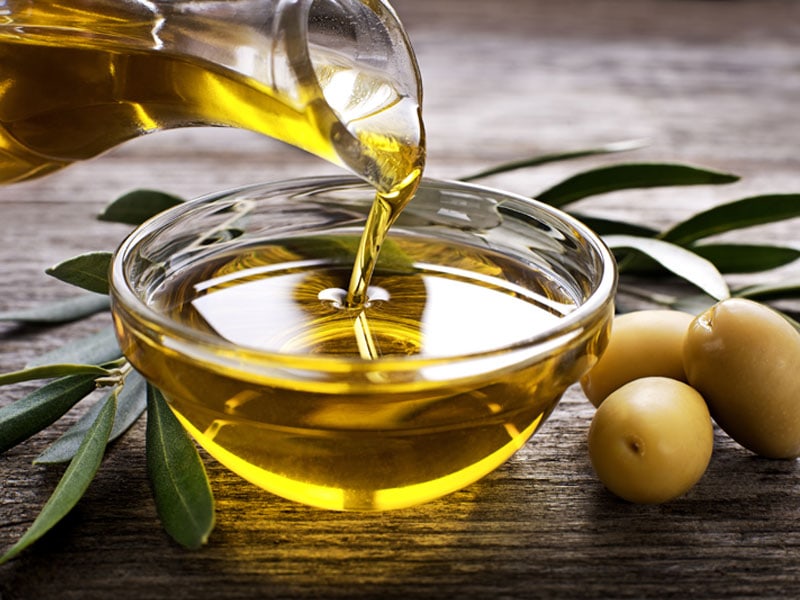
Most nutritionists agree that olive oil, especially the extra virgin type, is the healthiest and most versatile. In its unrefined state, olive oil retains its high quality and nutritional value completely.
However, it has a relatively low smoke point. So you should eat it raw as a salad dressing or cook it in low and medium-heat recipes. Olive oil can be frozen at about 21 °F (-6 ºC). If you store olive oil in the freezer, it solidifies after an hour.
Canola Oil

Canola oil is extracted from rapeseed. With both monounsaturated and polyunsaturated fats, this type of oil is particularly good for your health.
Compared to other types of vegetable oil, it has less saturated fat and a high smoke point. So canola oil is very good for your health. You can freeze it at 14 °F (-10 ºC).
However, this is not a good idea. Even if you manage to freeze canola oil, its shelf life is still the same, while the texture and flavor will be negatively affected.
Avocado Oil
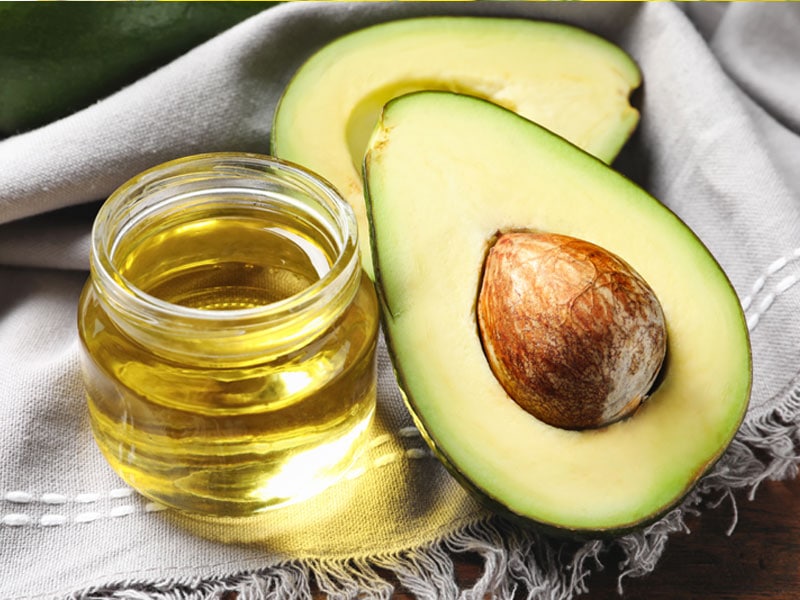
Avocado oil is a great suggestion from experts. It has a higher smoke point than olive oil. Therefore, you can use it for dishes that require high heat, such as deep frying or stir-frying.
Avocado oil is a super healthy oil because it contains vitamin E, lecithin, and potassium. However, people do not widely use it because of its high price. The temperature to keep it should be around 35°F to 37 °F (1.6°C – 2.5 °C), which extends its shelf life by about a year.
Sunflower Oil
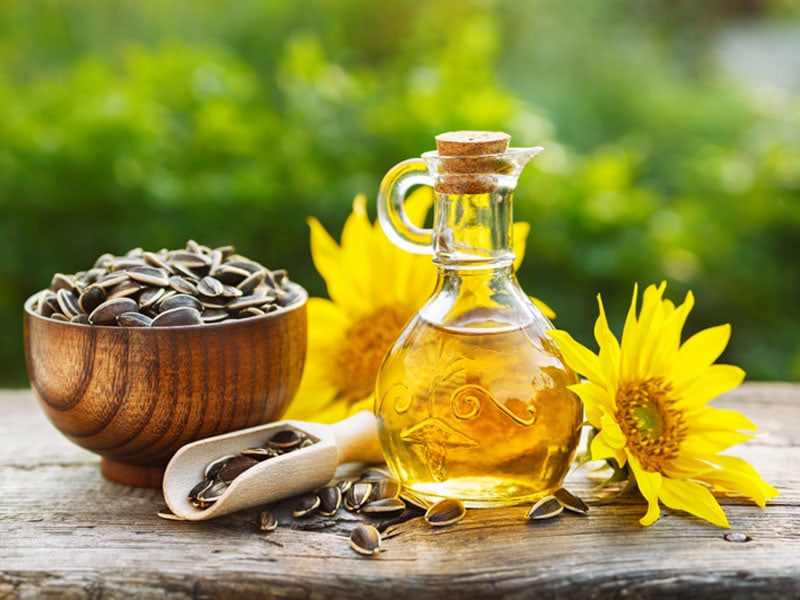
Just consuming one tablespoon of sunflower oil gives you 28% of the recommended daily amount of vitamin E. It is quite popular because its mild flavor does not overwhelm the taste of the dish.
In addition, it also contains healthy fatty acids such as omega-6 and omega-3. Since sunflower oil is frozen at 1 °F or -17 °C, it will never go solid in your freezer.
Coconut Oil

Coconut oil is high in saturated fats and can raise the level of cholesterol in your body, so some people object to using it.
But this kind of oil has a nice tropical aroma that many recipes require. Unlike most other vegetable fats, coconut oil is in its solid form even at room temperature (about 25 °C).
Peanut Oil
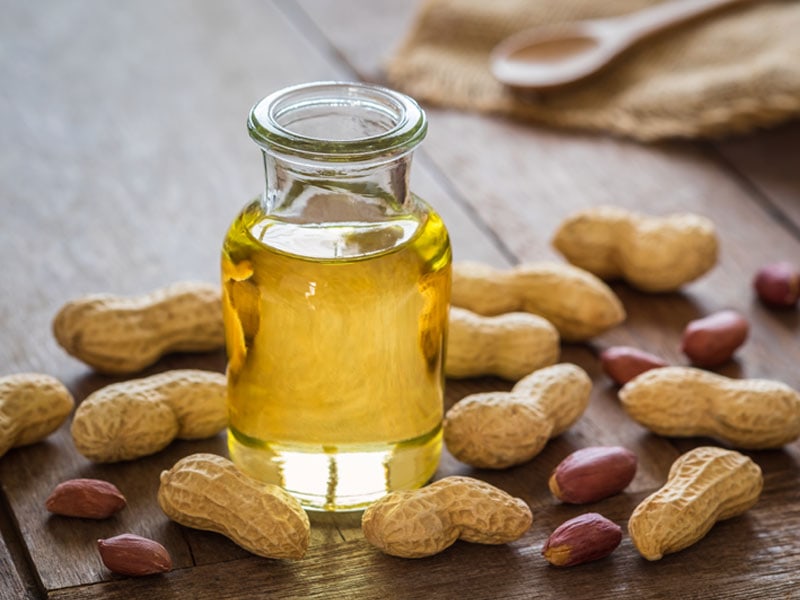
Peanut oil is also an ingredient worth experimenting with in recipes. Considered to have the highest monounsaturated fat content of all cooking oils, peanut oil is very good for the heart.
In particular, it has a high smoke point, so you can freely create dishes cooked at high temperatures without worrying about health effects. Peanut oil can be frozen solid at around 37 °F or 3 °C.
Flaxseed Oil
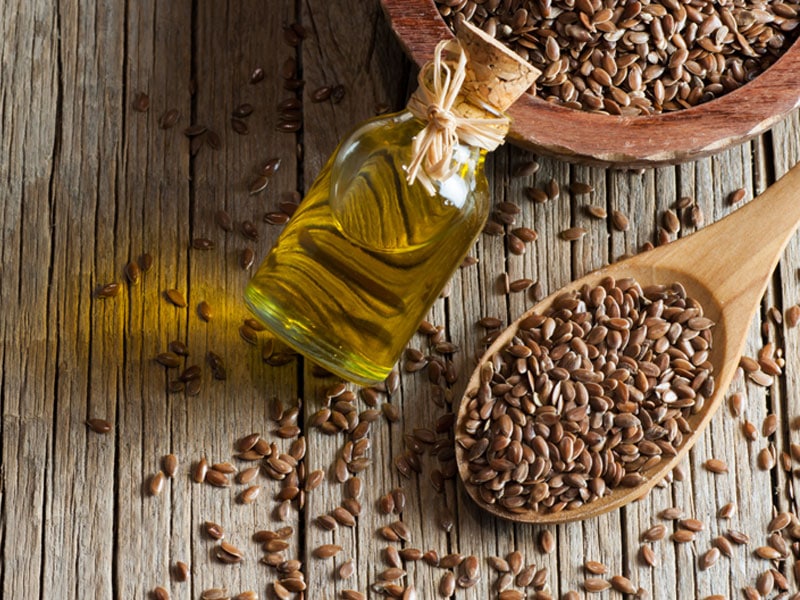
Flaxseed oil has a low smoke point, so it is not suitable for frying or sautéing. You may drizzle it on salads or desserts like pancakes or ice cream to enjoy its high ratio of omega-6 to omega-3.
These two types of fatty acids work to improve inflammation. Due to its freezing point of -11 °F (-24 °C), it will always remain liquid in your freezer.
Sesame Oil
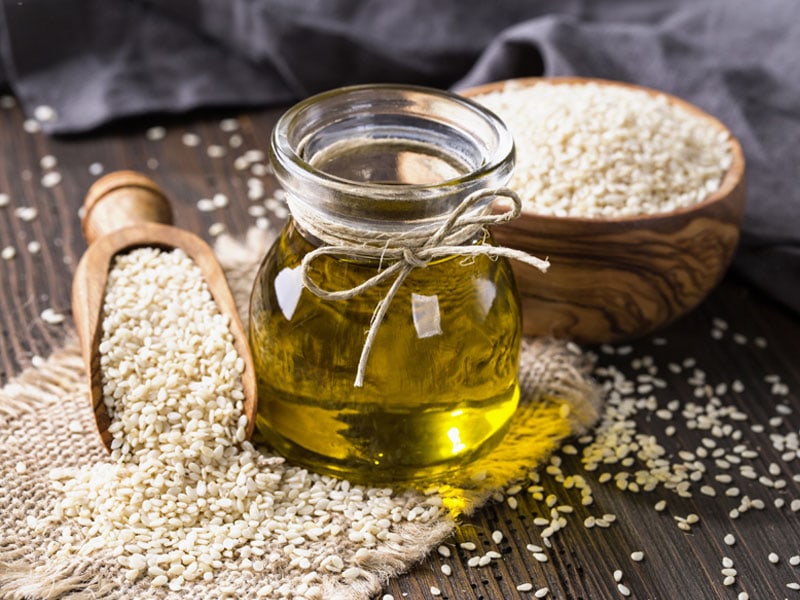
Sesame oil is quite strange to some people, but many cooks use this type of vegetable oil to enhance their food because it has an earthy and nutty taste.
Despite having both monounsaturated and polyunsaturated fatty acids, it is not rich in nutrients compared to other oils. You can refrigerate it at 21 °F or -6 °C to extend its shelf life.
Vegetable Oil

The word vegetable oil here refers to oils blended from plant-based oils. It can be a mixture of soybean, palm, canola, sunflower, and safflower oils. Most vegetable oil products are refined and processed.
Depending on the brands or number of oil ingredients, vegetable oils have different freezing points. However, most are usually frozen at 12 °F (-11 °C).
Step-By-Step Guide On Freezing Vegetable Oil
Freezing vegetable oils requires no special tools or techniques. You can do this at home.
Recommended vegetable oils for this freezing method include commercial vegetable oil, sunflower oil, olive oil, peanut oil, etc. Remember that this method can’t work on used cooking oil, which can go rancid even in the freezer.
In A Large Container
You may use either the original container of the vegetable oil or any container with a tight-fitting lid. This method is very easy to execute with only a few simple tools.
- Step 1: Pour the vegetable oil into an airtight plastic or glass container. Make sure the amount of oil is just 3/4 the total space of the container because the liquid expands when freezing.
- Step 2: Put the container in the freezer.
- Step 3: Check the oil until it is completely frozen.
If you want to use the oil directly after freezing, simply take the frozen block out to room temperature and wait for it to defrost slowly. It will return to its original liquid state with few changes in quality.

In An Ice Cube Tray
In addition, to make it easier to use, you can take advantage of an ice tray to freeze vegetable oil. Doing so will save you from having to defrost large chunks of frozen vegetable oil when you only need a small amount.
- Step 1: Pour a moderate amount of oil into the ice tray (highly recommend silicone type)
- Step 2: Put the oil in the freezer overnight.
- Step 3: You can put it in a tray or put each block of oil in a sealed bag and continue to store it in the freezer.
The oil is solidified in a convenient ice tray for you to defrost by servings. If you need to use it directly for cooking, just take out the right amount and put it in the pan to heat. Using a microwave oven is also an option. However, you should set the temperature low.
Olive oil is a very suitable vegetable oil for freezing.
How Long Does The Frozen Vegetable Oil Last?
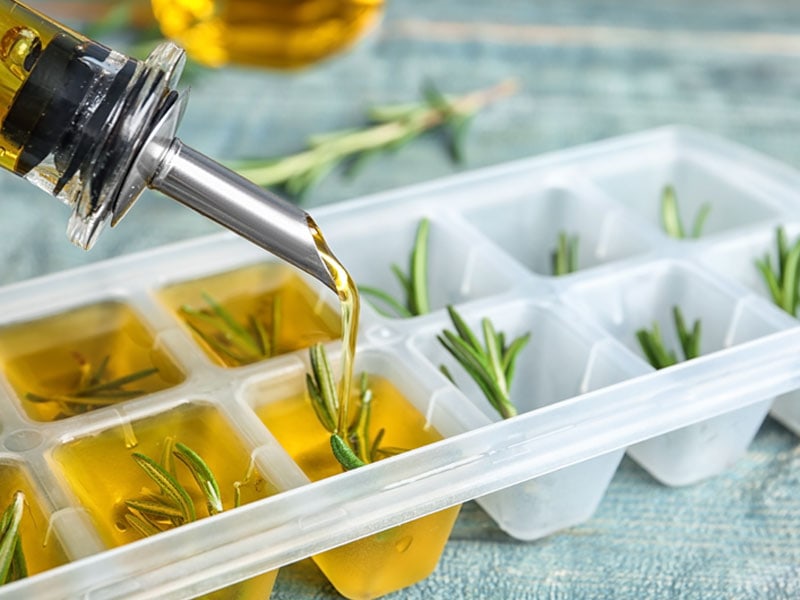
If a bottle of vegetable oil has been opened, it can only be stored for 6 months at most. However, when you freeze the oil, you can keep it for up to 2 years.
Vegetable oil does not go rancid when in a frozen state. However, oils of low quality will turn nasty as soon as they are thawed. Besides, repeated freezing and thawing can also affect the shelf life of vegetable oil.
Once defrosted, your cooking oil should be used within 3 to 4 days. To avoid waste, divide the oil into small pellets so that you can defrost just enough oil for your meal.
Alternative Methods For Vegetable Oil Storage
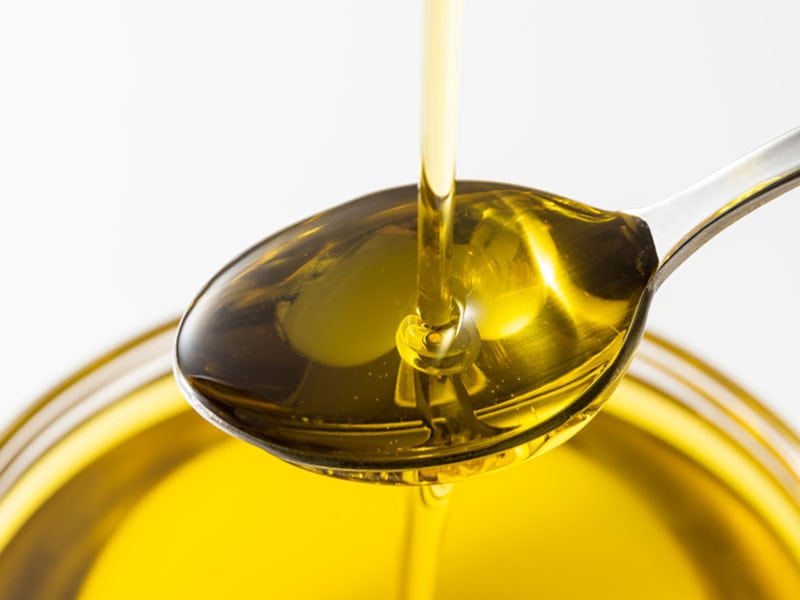
Freezing vegetable oil isn’t the only way to preserve it. You can replace it with other methods to store your vegetable oil longer.
- Refrigerating You can replace frozen vegetable oil storage with refrigeration. Opened cooking oil can last up to 1 year in the refrigerator and will retain all its nutritional value if you keep it in a sealed container.
- Storing in a dark, dry place: It is simpler to put cooking oil in the pantry. Whether opened or not, cooking oil can still be preserved in the pantry. Most vegetable oils last about 1 to 2 years.
FAQs
If you want to learn more about vegetable oil as well as how to freeze it, continue reading. Below are the most popular questions people often ask about this issue.
Are You Well-Versed In Freezing Vegetable Oil Now?
Vegetable oil is an essential ingredient in every kitchen. You use it every day for numerous delicious dishes. While there are several ways to preserve it, you can freeze vegetable oil to extend its shelf life.
Of course, if you feel that freezing vegetable oil isn’t optimal, you can try refrigerating it or simply placing it discreetly in the pantry. After all, this isn’t a difficult thing to store.
I hope this article has answered your question about whether vegetable oil can be frozen or not. Please share this post with people around you because they may be in the dark about this topic. Feel free to ask me anything in the comment section. Thank you for your time!
References
- Vegetable oil (2022) Wikipedia. Wikimedia Foundation.
- Healthline. 2022. What Is Saturated Fat and Is It Unhealthy?


